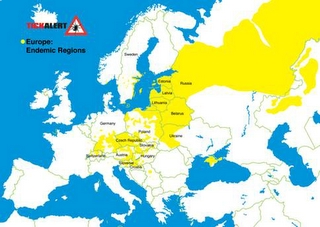 Mac has not been very well, but is still e-mailing strong. In this edition of the Globetrotter e-newsletter, Mac talks about a Japanese tea ceremony he attended whilst based in Japan shortly after WW2 and also the beginning of his five and a half year stint as a soldier in Japan in the 1950s.
Mac has not been very well, but is still e-mailing strong. In this edition of the Globetrotter e-newsletter, Mac talks about a Japanese tea ceremony he attended whilst based in Japan shortly after WW2 and also the beginning of his five and a half year stint as a soldier in Japan in the 1950s.
Nikko Kanko Hotel Lake Chuzenji, Nikko National Park, Japan Japanese Tea Ceremony: you sit on the floor with legs tucked straight back under you with you sitting on top of them. This is pure torture after ten minutes. Little nephew Jimmy McCarty is the only American I have seen that can do this with ease.
The hostess very slowly washed a tea cup (bowl of elaborate design) pouring water into it from a bamboo dipper, then pouring water into a gold and silver utensil and fiddled around (slowly) wiping this and that slowly. It all means something. It means she is slow. The tea was made from green powder and was special ceremonial tea. Small cakes were passed around. The hostess who was wearing a beautiful spring kimono bowed to you and you bowed in return as she gives you the cake. In bowing I tried to get weight off my legs and tried to stretch them by kicking them straight back. Very sneaky! I bowed three times but it still was not enough relief. I bowed more often and more times during entire ceremony than anyone in attendance. I even bowed when no one was there bowing and presenting something to me.
The Japanese must have thought I was either very polite or else not all there. The others weren't fooled one bit. An unwed middle aged lady from one of the Scandinavian Embassies suggested we share a cup of tea as it looked like there was going to be extra guests and not enough cups.
She whispered that since this was Japan where men come first. I drink first. I drank from one side of cup and then handed it to her and she drank from the other side. I then whispered to her and informed her that we had just gotten married (someone told me that a Japanese man and woman alternately drinking from the same cup are married on completion of alternating.)
She looked perplexed like she was in agony and then looked around to see if any Japanese had noticed. Ha! They had and were smiling. She then remembered it was sake (rice wine) and not tea you shared and whispered: “Sake, sake.” I answered: “Thank you, thank you.” She then saw the humour in the situation and giggled for the remainder of the tea ceremony. We were not invited back.
The flower arrangement in the tokonoma was a simple bud and leaves. It was explained that it is best to sometimes to not have things too beautiful. We have the same policy in our barracks.
It would be difficult to imagine American women meeting once a week to go thorough such a long drawn out ceremony, particularly in view of the fact that it is done in silence except for murmured dozos (please) and arrigato (thank yous.) I was saying Iowa Gozimas (good morning to Japanese I met) until I was told it is Ohio Gozaimas you should say.
Here are some more extracts from my diary of my time in Japan in November 1955.
Aboard the USS Mitchell, Pacific Ocean (I think the USS Mitchell was a ship from Presidential Lines turned into a troop ship.) At 1335 hrs we sighted Japanese fishing boats. It was the first sign of life, outside of our own ship we had seen for eleven days since leaving Seattle. The little fishing boat was approximately three hundred miles from Japan, as we were.
Sunday Tokyo Japan 19 Nov 55: at 0300 saw a light in distance periodically coming from a lighthouse. We had gotten up to go on deck as I wanted to see go into Yokohama harbour, as did others that could not sleep. At 0600 we saw land. The ship's public address system announced that we were entering Tokyo Bay. Yokohama has a Breakwater whose entrance can be closed at night. It has a gate of steel spikes that go down into the water and during the war the Allies were never able to get into the inner Tokyo Bay because of this. The ship's speaker announces: “The ship is moored. Raise the flag”. With ourselves bagged and barracks bags tagged with line number and wearing fatigues we waited to get off the ship. I felt like a refugee with that tag with my name on it. The guy in front of me turned out to be from Seward Nebraska, Edward R Wittrock. After we expressed amazement of living only thirty miles from each other in Nebraska we had nothing to talk about as we didn't know the same people as we both already had been in the service a long time.
In a typical service snafu after they insisted we wear fatigues off the ship, we no sooner got off than we were ordered to go into a warehouse and change into Class A uniform which had been packed and stored in barracks bags and were winkled after being squashed into those barracks bags for about two weeks. They wanted us to look nice for the Japanese on the street. One guy left his briefcase in the warehouse and a Japanese man came running out teeth all smiling to return it to the owner. This was our first experience with the honesty of the Japanese people. Quite a contrast to the Philippines. My buddy nicknamed the Colonel said 67 instead of his last name, first name and middle initial coming off the ship. No one noticed.
Once we were docked the confusion began with me. I was the only one going to Headquarters FEAF, Tokyo, an Airman third class. In those days they ironically would have sponsors assigned to officers and maybe even NCOs but none to airmen third class. I hitched a ride in an Army truck into Tokyo with another airman third class who was driving there. We passed a vehicle with no-one sitting in driver's seat. I then realised he was sitting right hand seat of car. I noticed washing hanging on bamboo poles with sticks through garments sleeves. This required no clothes pens and the wind couldn't blow them down. I was all eyes on the eighteen mile ride from Yokohama to Tokyo. I was told that a bamboo grove is the safest place to be in a typhoon or earthquake but could not find such a grove in Tokyo. I found our mess hall had a bamboo screen, a bamboo counter and there is bamboo furniture in our day room. Much bamboo is used over here, it has many, many uses. I was to spend five and one half years in Japan and later met a woman who wrote a book called The Wise Bamboo about funny things that happened during occupation duty. I would like to reread it.
At first thought, I thought there was a national epidemic over here. I saw so many people wearing what looked like surgical masks over their face. They wear them when they have a cold so as to not spread germs or to avoid catching a cold from others. They look like they are ready to go into surgery or are ready to hold up a bank. They look particularly funny if driving a car. I had to ask strangers where Hq FEAF was as I had no idea except that it was in Tokyo. When I found the Hqs, the first person I met was an American WAC hollering into a phone Mushi, Mushi, Mushi Mushi. She saw my confusion and explained that Mushi Mush was Hello hello. She saw my confusion and tried to help me out in my first few days in Japan. It was the beginning of the most enjoyable five and one half years of my life.
If you would like to get in touch with Mac, he is happy to correspond by e-mail when he is well. His e-mail address is: macsan400@yahoo.com
 The warning identifies 16 central and eastern European countries where the TBE infected tick population is officially endemic and therefore poses a high risk to visitors who have not been immunised or taken bite prevention precautions.
The warning identifies 16 central and eastern European countries where the TBE infected tick population is officially endemic and therefore poses a high risk to visitors who have not been immunised or taken bite prevention precautions. 

 Mac has not been very well, but is still e-mailing strong. In this edition of the Globetrotter e-newsletter, Mac talks about a Japanese tea ceremony he attended whilst based in Japan shortly after WW2 and also the beginning of his five and a half year stint as a soldier in Japan in the 1950s.
Mac has not been very well, but is still e-mailing strong. In this edition of the Globetrotter e-newsletter, Mac talks about a Japanese tea ceremony he attended whilst based in Japan shortly after WW2 and also the beginning of his five and a half year stint as a soldier in Japan in the 1950s.